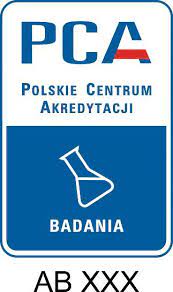There are several laboratories on the Polish market that specialize in cannabis research. Each of them uses different test procedures to determine cannabinoids, often using different analytical techniques. High performance liquid chromatography (HPLC) is the most widely used technique in the analysis of cannabinoids in the world. It is considered the most reliable. Methods based on the gas chromatography (GC) technique are used less frequently.
After sending the sample for testing, the customer receives a test report, commonly mistakenly referred to as a “certificate”. The use of incorrect nomenclature is probably caused by an overly literal English translation of the phrase “Certificate Of Analysis” (COA). This is because certification, following Wikipedia, is: “a confirmation of compliance with certain requirements, often limited in time, issued by independent certification bodies, setting control standards in the scope stipulated by a given unit.” The report / test report does not fit the definition of certification, but reporting the results obtained during the analysis.
Coming back to the topic, what should a reliable research report contain? What should the consumer pay attention to?
First of all, it is worth checking whether the reporting company exists at all. It is relatively difficult, especially in the case of foreign units – therefore it is worth asking for a Polish study. It often happens that reports are created in a graphics program, and the laboratory itself does not exist. In addition, it is worth finding out if the laboratory is independent, which means that it does not produce and sell hemp products itself.
2. The report should be made by an accredited body
In Poland, the accreditation body for research laboratories is the Polish Center for Accreditation. The report made by the accredited body in the accredited scope should be signed with the appropriate logo along with the accreditation number. On the website http://www.pca.gov.pl you can check whether the accreditation is up-to-date and to what extent

3. Wyniki
W przypadku kannabinoidów wyniki podaje się najczęściej w procentach masowych. Wynika to z ustawy o przeciwdziałaniu narkomanii, która definiuje legalny w Polsce limit THC w suszu konopnym jako <0,20% m/m. Zdarza się, że laboratorium przelicza również wyniki na mg/kg lub mg/ml według potrzeby klienta. Ale to procenty masowe są złotym standardem.
Laboratorium powinno każdorazowo pomóc również w interpretacji wyników.
4. Elektroniczne zabezpieczenie dokumentów
To kolejna istotna kwestia. W tym wypadku mowa o dwóch sprawach:
5. Data
Ważną kwestią jest też data wydania sprawozdania. Nie powinna być starsza niż sprzed roku. Jeden rok to często termin ważności olejków więc trudno uwierzyć, że sprzedawca w 2021r. oferuje ten sam produkt (z tej samej partii produkcyjnej) i legitymuje go dokumentem z roku 2019 (co się zdarza) – w tej sytuacji albo produkt jest przeterminowany albo raport nie dotyczy sprzedawanej partii.
